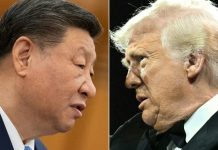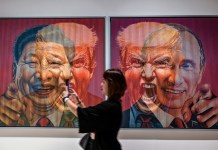Has the Worlds Biggest Democracy – India, really turned towards Mobocracy – referring to the violent Mobs who take laws in their own hand? Since the Modi Government came into power, religious tolerance has deteriorated and freedom of expression has been curtailed in India. According to a 2015 report, India experienced a 17% increase in communal violence and mob-killing became the order of the day.
- Reason for Exodus of Kashmiri Pandits: Pakistan, Jagmohan or Islamist’s?
- India Targeting Kashmiri Militant Families To Crush Rebellion From The Root?
- Rohingya Muslims Will Be Identified, Biometric Collected and then Deported
Since 2014, hate crimes, social boycotts, assaults, and forced conversion have damaged the constitutional secular fabric of society, resulting in inequality, political and administrative discrimination, threats to the physical security of minorities. In fact, India’s pluralistic tradition faces serious challenges.
The Evangelical Fellowship of India’s Religious Liberty Commission has tallied 134 attacks on Christians of their churches in the first half of 2016, nearly as many as the annual totals for both 2014 and 2015.
So far as the plight of Muslims is concerned, they have been targeted on the basis of land disputes, their traditional livelihoods selling beef or cow products, and social interaction with Hindus. In this regard, several well-known authors, filmmakers and other civil society members returned National and State sponsored awards to protest, what they said was the growing religious and cultural intolerance in the country.
Many intellectuals are wondering whether India is shifting towards a “mobocracy” under Mr Modi’s watch. They also question the governments silence over various killings after mob lynching which has been witnessed in Uttar Pradesh, Rajasthan etc.
Haryana Chief Minister Manohar Lal Khattar remarked that Muslims can stay in India, but they will have to give up eating beef. The chief minister of BJP-ruled Rajasthan, where 55-year-old dairy farmer Pehlu Khan was lynched, offered condolences over his “demise” without mentioning the fact that he had been murdered. A BJP lawmaker said he had “no regret” over the killing because Khan was a “cow-smuggler”.
While delivering the 12th Dr. Asghar Ali Engineer Memorial Lecture titled, “Muslims of India: Past and Present” at the Constitutional Club in Delhi on 23rd November, 2018 organized by Centre for Study of Society and Secularism (CSSS), Constitutional expert A G Noorani said “Muslims of India are in worst position today than in 1857 or 1947”.
There is a fast disappearing of Muslim in the Indian Republic and the last four years have seen a terrifying demonstration of this tyranny in action. In the 2014 elections, the BJP came to power without a single elected Muslim MP – in any case, it had fielded only seven Muslims out of a total of 482 candidates.
The total Muslim representation in Parliament fell to 4%, the lowest since 1957. It is to add that recently the South Asia Solidarity Group has called on the UN Special Rapporteur on Minority Issues, Rita lzsak-Ndiaye to investigate the growing human rights emergency in India, particularly the attacks on religious minorities including Dalits.
Recently, the Government crack downed the Dalit activists, journalist and lawyers who were critical of some policies of the government. Its aim is to silence those who have raised their voice against the abuse of state power and to warn others against opening their mouths. No democracy can be a real democracy where the constitutional secular fabric of society, pluralistic tradition faces serious challenges.
By: Syed Mujtaba and Basharat Haqani. Both the writers are observers of the socio-political contexts and can be reached at jaan.aalam@gmail.com. Opinions expressed by the writers do not reflect the views of the EurAsian Times.




